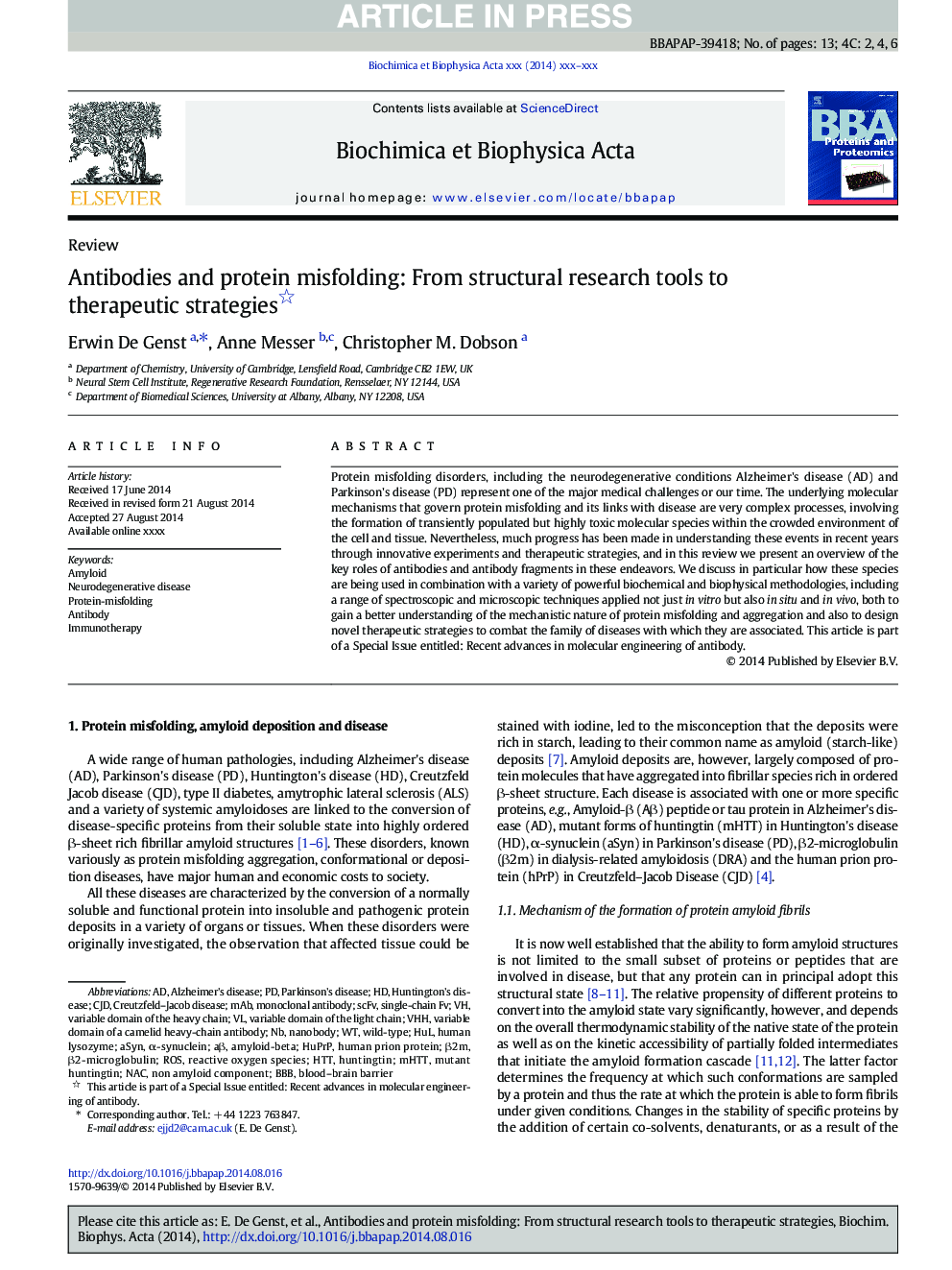| Article ID | Journal | Published Year | Pages | File Type |
|---|---|---|---|---|
| 10537193 | Biochimica et Biophysica Acta (BBA) - Proteins and Proteomics | 2014 | 13 Pages |
Abstract
Protein misfolding disorders, including the neurodegenerative conditions Alzheimer's disease (AD) and Parkinson's disease (PD) represent one of the major medical challenges or our time. The underlying molecular mechanisms that govern protein misfolding and its links with disease are very complex processes, involving the formation of transiently populated but highly toxic molecular species within the crowded environment of the cell and tissue. Nevertheless, much progress has been made in understanding these events in recent years through innovative experiments and therapeutic strategies, and in this review we present an overview of the key roles of antibodies and antibody fragments in these endeavors. We discuss in particular how these species are being used in combination with a variety of powerful biochemical and biophysical methodologies, including a range of spectroscopic and microscopic techniques applied not just in vitro but also in situ and in vivo, both to gain a better understanding of the mechanistic nature of protein misfolding and aggregation and also to design novel therapeutic strategies to combat the family of diseases with which they are associated. This article is part of a Special Issue entitled: Recent advances in molecular engineering of antibody.
Keywords
CJDmAbβ2MhttVHHmHTTscFvCreutzfeld–Jacob diseaseNACAβsingle-chain FvROSα-synucleinβ2-microglobulinAsynAmyloidamyloid-betaMonoclonal antibodyimmunotherapyAlzheimer's diseaseHuntington's diseaseNeurodegenerative diseaseParkinson's diseasevariable domain of the light chainvariable domain of the heavy chainBlood–brain barrierBBBHuman lysozymeNanobodywild-typeHuntingtinmutant HuntingtinAntibodyHuman prion proteinReactive oxygen species
Related Topics
Physical Sciences and Engineering
Chemistry
Analytical Chemistry
Authors
Erwin De Genst, Anne Messer, Christopher M. Dobson,
